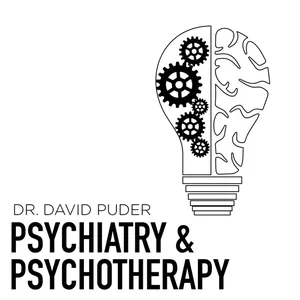
Procrastination: How To Overcome It
Discover the true complexity of procrastination and its profound impact on mental well-being. This article delves into the emotional and psychological roots of procrastination, explores its effects, and offers effective strategies to overcome it.
Misconception has long linked procrastination solely to time management, but the truth may surprise you. Imagine telling a clinically depressed person to "cheer up" – it's comparable to advising chronic procrastinators to "just do it." It's a lot more complex than meets the eye.
Over the past two decades, procrastination has emerged as a fascinating subject of study in psychological research. Contrary to the simplistic notion of simply delaying tasks, scholars now acknowledge its complexity and enormous impact on our daily lives. True procrastination has been found to mostly stem from weak self-regulation: it involves voluntarily postponing significant tasks, despite being aware of the succeeding consequences. It’s about putting off responsibilities until the last possible moment and often finding ourselves in a frenzy of stress as looming deadlines approach. While a distorted perception of time may contribute to the issue, it's the inability to effectively manage emotions that lies at its core.
It may seem like “only a harmless habit,” but procrastination can actually heavily impact our mental well-being by triggering stressful reactions and taming well-being.
On this journey, we dig deeper into the reasons behind procrastination, its root issues, the effects it can have on various aspects of our lives, traits, types, challenges, and most importantly, effective strategies to overcome it.
Breaking Down Procrastination: Understanding the Sneaky Ways it Holds Us Back
When it comes to everyday stuff like finishing work or even just sending an email, it can sometimes feel like climbing a mountain. And what's the easiest way out? Putting it off or just not doing it at all.
Procrastination strikes when you least expect it. But what makes us fall for its tricks? It's all about our feelings and what's going on around us, also known as self-regulation.
Fuschia Sirois, a psychology professor at the University of Durham, says procrastination is really just avoiding stuff we don't want to do. But it's not just about the task itself; it's also about how we feel about doing it.
"Procrastination is basically about how we handle our emotions. Tasks that make us feel anxious, overwhelmed, or just plain bored are the ones we're most likely to put off. Whether it's a big work project or just cleaning the house, thinking about doing them can bring up all sorts of negative feelings, making us turn to procrastination for comfort."
But procrastination isn't just about chores and work stuff. It can also mess with our personal goals and dreams. It whispers excuses in our ears, telling us it's okay to put off going after what we want. Whether it's starting a new hobby or taking care of our health, procrastination can stop us from getting started, trapping us in a cycle of doing nothing.
Exploring the Reasons Behind Procrastination
Procrastination can stem from a multitude of reasons, each varying from person to person.
Fear
Fear of failure, fear of not meeting expectations, or even fear of success. This fear can paralyze individuals, causing them to avoid tasks altogether rather than face the possibility of falling short.
Internal Pressure of Being Perfect
We convince ourselves that by postponing a task, we can avoid the possibility of falling short of our own expectations or facing criticism from others.
Perfectionists often set impossibly high standards for themselves, leading to a fear of starting tasks because they worry they won't be able to meet these overly ambitious expectations. As a result, they delay starting the task until they feel they can achieve perfection, which, more often than not, leads to missed deadlines and increased stress.
Poor Time Management Skills
Individuals who struggle to prioritize tasks or manage their time effectively may find themselves constantly pushing tasks aside in favor of more immediate gratification or easier activities.
Mental Health Issues
Procrastination can serve as a coping mechanism for underlying mental health issues such as depression or anxiety. The weight of these conditions can cloud our judgment and sap our motivation, making even the simplest of tasks feel insurmountable. In such instances, when life feels too overwhelming, procrastination can offer a brief escape from our inner struggles.
Distractions
Our modern, hyper-connected world bombards us with distractions, making it all too easy to succumb to the habit of procrastination. Social media, streaming services, and endless scrolling serve as digital bells, luring us away from our responsibilities and into the universe of mindless consumption.
Lack of Motivation
Lack of motivation can be a driving force behind procrastination. When individuals lack intrinsic motivation or fail to see the relevance of a task to their goals, they are more likely to postpone it indefinitely, opting instead for activities that provide them with immediate satisfaction.
Root Issues Triggering Procrastination
While the reasons mentioned above contribute to procrastination, there are deeper-rooted issues that may exacerbate this behavior.
Low Self-Esteem: Individuals who struggle with feelings of inadequacy or self-doubt may use procrastination as a coping mechanism to avoid confronting these negative emotions.
Difficulty Handling Emotions: Difficulty in handling emotions such as anxiety, stress, or boredom can trigger and lead to procrastination. Rather than facing uncomfortable emotions head-on, individuals may resort to procrastination as a means of escape, temporarily alleviating their discomfort by engaging in mindless activities.
Lack of Accountability: Without external accountability measures or consequences for delaying tasks, individuals may feel less motivated to tackle their responsibilities in a timely manner.
Effects of Procrastination
The effects of procrastination are various and so is their impact, mostly centered around bad well-being.
Academically, procrastination can lead to poor grades, missed deadlines, and a sense of overwhelm as assignments pile up.
In the workplace, it can hinder career advancement, damage professional relationships, and decrease overall job satisfaction.
On a personal level, procrastination can take a toll on mental health, contributing to increased stress, anxiety, and feelings of guilt or shame.
Chronic procrastination can also lead to a cycle of self-sabotage, where individuals repeatedly undermine their own success by putting off important tasks.
Procrastination can affect interpersonal relationships, as missed deadlines or unfulfilled promises can undermine trust and lead to resentment from others.
The constant weight of unfinished tasks hangs heavy on our shoulders, depleting our energy and diminishing our sense of well-being. If neglected, chronic procrastination can spiral into a downward hole of apathy and despair, hindering our vitality and zest for life.
Some Studies on Procrastination
As much as individuals suffering from procrastination may seek to justify their behavior positively, the truth remains: procrastination lacks any inherent positive rationale. When we link it back to emotion regulation, it might give us clearer perception in terms of task complexity, uncertainty, or boredom. However, this understanding doesn't liberate procrastination of its negative impact; it just offers insight into why we procrastinate, but it doesn't justify the behavior itself.
Who is More Likely to Procrastinate?
APS Fellow Joseph Ferrari, a psychology professor at DePaul University, asserts that although procrastination is a common experience, it does not necessarily define everyone. He emphasizes that while everyone may occasionally delay tasks, not all individuals exhibit chronic procrastination.
"Procrastination is a common experience, but it does not necessarily define everyone. While everyone may occasionally delay tasks, not all individuals exhibit chronic procrastination." - Joseph Ferrari
Specifically, individuals with higher grey matter volume exhibited better self-regulation, enabling them to focus on long-term benefits and persist with tasks. Conversely, those with lower grey matter volume in this region were more prone to procrastination, potentially sacrificing future rewards for immediate gratification.
People who suffer from attention-deficit/hyperactivity disorder (ADHD) struggle more to regulate and manage their emotions, which partly explains why they are more likely to procrastinate.
Individuals with enlarged amygdalae, the brain's threat detection center, tend to be more fearful and hesitant toward uncertain tasks, as revealed by a 2018 study. This fearfulness extends to minor tasks like drafting emails, leading to procrastination due to the anticipation of discomfort. Furthermore, procrastinators exhibit fewer neural connections between the amygdala and the dorsal anterior cingulate cortex, which processes perceived threats, contributing to their tendency to delay tasks.
Research has shown that people who procrastinate tend to experience higher levels of stress and lower well-being.
Understanding Procrastination: Types, Traits, and Challenges
Are you highly impulsive and find it challenging to stick to routines? If so, you might relate to the struggle of procrastination. Recent research has shed light on this common phenomenon, revealing that procrastination isn't a one-size-fits-all issue.
Procrastination manifests in various forms, with chronic procrastinators struggling consistently to complete tasks, while situational procrastinators delay based on the nature of the task.
Nature or Nurture?
Research suggests that procrastination may have genetic roots tied to impulsivity and could be inherited. However, this genetic predisposition doesn't determine one's fate; individuals aren't permanently defined by their genetic tendencies.
Additionally, environmental factors play a crucial role in influencing our response to tasks we find unpleasant. Even individuals who typically don't procrastinate may do so under prolonged stress or after experiencing significant life events like a serious illness or a major career setback.
Which Type of Procrastinator Are You?
A combination of an unpleasant task with high impulsivity and low self-discipline often leads to undesirable results. Chronic procrastinators, such as individuals who habitually put off starting important projects, demonstrate a consistent pattern of delaying tasks regardless of their nature. This constant struggle to initiate and complete tasks intersects with impulsivity and a lack of discipline, representing the core features of chronic procrastination.
In contrast, situational procrastinators may exhibit procrastination tendencies only in specific circumstances or with particular types of tasks. For example, they may delay tasks that they perceive as boring or uninteresting, while promptly completing tasks that align with their interests or preferences. Unlike chronic procrastinators, whose procrastination is a pervasive behavior pattern, situational procrastinators may demonstrate more flexibility in their approach to task completion.
Which Personality Type Does Procrastination Fall Under?
Moreover, chronic procrastination is strongly correlated with conscientiousness, a key personality trait associated with self-regulation and discipline. However, when impulsivity and a lack of discipline converge, the consequences can be quite...scary. For instance, missing crucial deadlines, neglecting important responsibilities, or jeopardizing future opportunities can result from this risky combination.
Why Do Procrastinators Struggle with Self-Defeat?
Additionally, most procrastinators experience a sense of self-defeat, which can arise from negative (fear of failure, perfectionism) or positive (temptation) states.
Taking this notion one step further, the sense of defeat stemming from various factors includes:
Negative emotions
Fear of failure and perfectionism. For many procrastinators, the fear of not meeting expectations or falling short of their own standards can be paralyzing, leading them to avoid tasks altogether.
Perfectionism, in particular, can exacerbate procrastination tendencies, as individuals may delay starting a task out of fear that they won't be able to meet their high standards of excellence.
On the other hand, procrastination can also result from positive states, such as the temptation to engage in more enjoyable or immediately rewarding activities instead of tackling important tasks.
This form of procrastination, driven by the charm of pleasurable distractions, can lead individuals to prioritize short-term gratification over long-term goals. In this way, even seemingly positive experiences can contribute to procrastination and prolong the cycle of self-defeat.
"Overall, whether driven by negative emotions or positive temptations, the sense of self-defeat experienced by procrastinators can be deeply ingrained and difficult to overcome. This internal struggle can further fuel procrastination behaviors, creating a vicious cycle that undermines productivity and well-being."
Strategies to Prevent Procrastination
While procrastination may seem like an insurmountable foe, there are strategies we can employ to reclaim control of our time and energy.
Pinpoint, Assess & Reverse Procrastination Triggers When faced with tasks that trigger procrastination, individuals can proactively identify and address the underlying reasons behind their reluctance. By reassessing their perceptions and reframing the tasks at hand, they can make them more appealing and approachable. Additionally, understanding and adjusting their resistance levels can enable individuals to gradually ease into tasks, thereby minimizing procrastination and enhancing productivity.
Take Action to Get Started Overcoming the initial hurdle of starting a task is often key to defeating procrastination. By taking proactive steps to initiate tasks, individuals can diminish their reluctance. Moreover, the act of starting a task can trigger a subconscious reappraisal, revealing that the task may not be as mundane as initially perceived. This realization can provide the motivation needed to continue and complete the task successfully, thereby breaking the cycle of procrastination.
Disconnect from Distractions In today's digital age, distractions abound, making it challenging to maintain focus and productivity. By disconnecting from devices or employing blocking apps, individuals can minimize digital distractions and prioritize important tasks. This proactive approach helps create an environment conducive to concentration and productivity, reducing the temptation to procrastinate.
Make Rewards Immediate An effective strategy for combating procrastination involves making the rewards of productive behavior more immediate. By implementing temptation bundling, individuals can associate enjoyable activities with tasks they tend to procrastinate on. This technique leverages the principle of immediate gratification, making it easier to overcome procrastination and stay on track with long-term goals.
Make Consequences Immediate Another approach to tackling procrastination is to make the consequences of procrastination more immediate. By committing to immediate consequences for delaying tasks, individuals increase their accountability and motivation to act instantly. This strategy introduces a sense of urgency, therefore pushing individuals to be more timely-oriented and reducing the likelihood of procrastination.
Design Future Actions Employing commitment devices can help individuals prearrange future behaviors and minimize procrastination. By implementing measures such as deleting distracting apps or setting up automatic transfers to savings accounts, individuals can create a structured environment that promotes productivity and minimizes procrastination-inducing triggers.
Make Tasks More Achievable Breaking tasks down into smaller, more manageable components is an effective strategy for overcoming procrastination. By adhering to the 2-Minute Rule and starting tasks with minimal effort, individuals can overcome the initial resistance to action and build momentum. Additionally, breaking tasks down into smaller increments fosters a sense of progress and accomplishment, further motivating individuals to continue and complete their tasks successfully.
Procrastination is a complex phenomenon influenced by diverse factors, including fear, perfectionism, poor time management skills, and low self-regulation. However, by understanding the root causes of procrastination and implementing effective strategies for overcoming it, individuals can reclaim their time, enhance their productivity, and improve their overall well-being. Remember, overcoming procrastination is a journey, not a destination, and it requires patience, persistence, and self-awareness.











